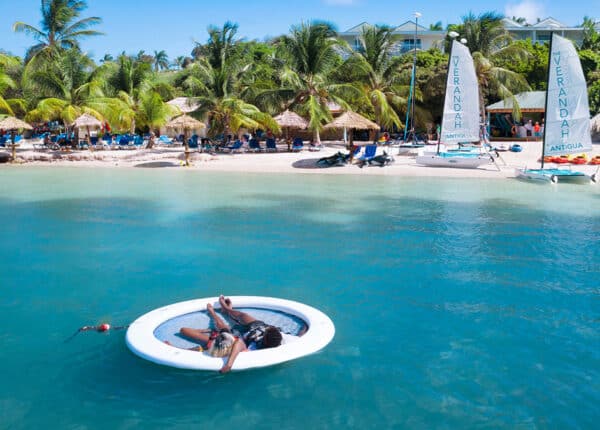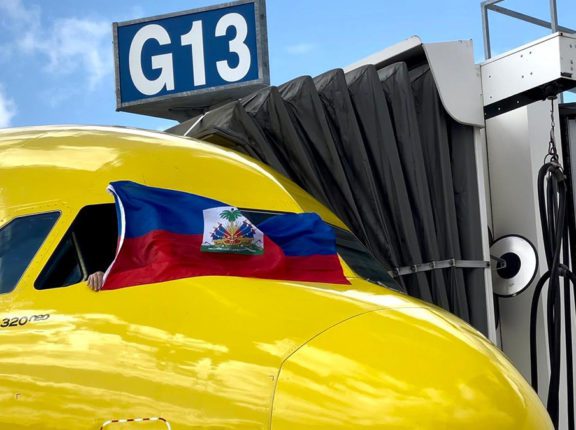Durandis: The Media, the United Nations and Leadership in Haiti
By Ilio Durandis
CJ Contributor
The lack of excellent leadership in Haiti over the years is the primary reason why the United Nations is in Haiti.
It was after the removal of a democratically-elected government in 2004 and at the request of a transitional government that the United Nations Mission to Stabilize Haiti, better known by the French acronym, MINUSTAH, came to existence.
Over the past nine years, mainly because of MINUSTAH presence, there has not been any coup d’etat, as compared to three for the previous 13 years (1991- 2004).
Relatively speaking, since the early days of MINUSTAH, there has been very little political violence or mass uprising. Although it is worth to note that under MINUSTAH’s watch, the phenomenon of kidnapping has been elevated.
In any case, after the earthquake of Jan. 12th, 2010, and because of Haiti’s lack of proper sanitation system, many people were expecting some kind of health epidemic to arise; however, few people, if any could have predicted that 10 months later, a cholera outbreak would be imported and took so many Haitian lives.
Here are a few links from major news outlets reporting on the early days of the outbreak in Haiti, BBC, FOX News, NYTimes, CBSnews, CNN and the Guardian.
As expected, at the onset of the epidemic, most of the news outlets were only interested in reporting about the death toll and the possible links to Haiti’s weak sanitation system and poverty. Few mentioned that Haiti has never experienced a cholera outbreak before, and there was very little interest or any questions raised about the real source of this deadly bacteria.
If a comparison could be made about how some of those news outlets covered other similar outbreaks in the United States or other countries with good leadership, it would be clear that the coverage of the cholera outbreak in Haiti at the beginning might have played a role in this cat and mouse game that the United Nations have been playing with the Haitian people, especially the victims and their family.
For example, late last year a fungal meningitis outbreak occurred in part of the United States, and the news outlets coverage did not miss the opportunity to report on a possible source of that outbreak. A link between the sick and a specialty pharmacy in Massachusetts was quickly established, and that was important to prevent further widespread contamination of the fungus.
Similarly, the same was true with the peanut butter Salmonella outbreak of 2009 or this CBSnews story that reported conclusive evidence a month later about the source of that 2009 outbreak. More recently, a horsemeat scandal has swept Europe, and again a quick link to the source was at the base of most news outlets coverage.
Now back to the United Nations and the cholera outbreak. The evidence that the vibrio cholerae was introduced to Haiti by MINUSTAH peacekeepers has been well-established. A whole genome analysis of samples collected in Haiti and published in the reputable Science magazine or this report by a group of international scientists has made the connection between the UN and the presence of cholera in Haiti.
Despite the scientific evidence, the history of cholera in Haiti before 2010, and all the circumstantial evidence linking a Nepalese base to the outbreak of cholera in Haiti, this week Ban-Ki Moon, the United Nations Secretary General, rejected damage claims for cholera victims in Haiti.
In any case, at first the UN denied it was the source, then it refused to acknowledge the scientific evidence. Now, the UN is hiding behind a 1947 convention which it claimed grants them immunity in such a case.
The next logical questions are: what is next, where are the Haitian authorities, and who should be held responsible?
In a political context, those three questions will be hard to answer. First, the Haitian government should have been the one claiming damages for the victims, however in this regard they have been anything, but missing in action.
Second, the group of lawyers seeking damages for the Haitian victims or speaking for the victims are mostly international activists — where are the Haitian lawyers?
And lastly, since the science has led us to believe that a link exists between the UN Nepalese soldiers and the cholera outbreak in Haiti, then if the UN rejected the compensation claims, shouldn’t the victims look towards their government for an answer?
As Secretary Ban Ki-moon stated in his rejection letter, he made a call to Haiti’s president to let him know of the United Nations rejection of the compensation claims. Naturally, it would now be up to the President to relay this message to the Haitian people, especially the victims and their next of kin.
As of this writing, there has not been any official rebuttal or comment regarding the UN’s rejection from the Haitian government.
It is this kind of poor leadership and lack of concern for Haitian lives coming from their own government that makes it so easy for the UN Secretary General to deny compensation to the victims due to the UN own negligence in Haiti.
The current MINUSTAH chief, Nigel Fisher, often likes to point to the fact that the UN is in Haiti at the request of the Haitian government, and that it is up to that government to ask the UN to leave.
But seriously, if after bringing an epidemic that has now killed almost 8,000 and infected more than 200,000 people, the Haitian government has found a way to keep its silence, then it is clear as to some of the reasons why Haiti might remain a failed state for years to come.
As the Haitian government pushes for tourism, foreign investments, bigger role in CARICOM, among other things, it must not and should not neglect that its primary and most important role is to defend and protect the people against all foreign and internal threats.
If the cholera epidemic is not a threat, and that its originators are allowed to be immunized from taking responsibility, then a case could be made that the Haitian government is not too interested in looking after the welfare of its own people.
A proper rebranding of Haiti will not succeed, when it continues to be known as the land of impunity.
The United Nations must set precedence and take responsibility for its action. The Haitian government needs to speak in the interests of the Haitian people. And lastly the media must keep the pressure on and seek the truth for the Haitian victims.
Ilio Durandis, a Caribbean Journal contributor, is the founder of Haiti 2015, a social movement for a just and prosperous Haiti. He is also a columnist with The Haitian Times.







